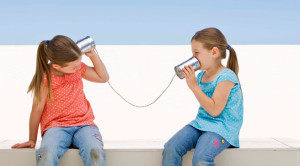What are Social Skills?
WHAT ARE SOCIAL SKILLS?
We all want to be liked. We may not all crave to be the most popular, but we do need friends, and it’s certainly something we want for our kids. While some children seem to have a natural knack for jumping into a group and feeling right at home, some children need to learn this skill.
Our daily lives depend on being able to interact with others, whether it’s in a social situation, a learning environment, at work, or simply buying a pair of shoes. Adults who are socially adept tend to be more highly regarded than shyer or awkward people. Children who are comfortable with others and who make friends readily tend to be less anxious and more secure which naturally leads to a higher self-esteem and more confidence.
So what are social skils?
In a nutshell, social skills are the things we do to make getting along with other people easier and more enjoyable. Some of these skills come naturally, such as smiling and chatting, others are learned from our environment, such as acceptable manners and appropriate behaviour.
Social skills that children need include:
- Co-operation: the ability to play with others in the same way, or work towards the same goals.
- Knowing how to be a friend: friendship for children is so important and sometimes it’s hard to navigate. A casual word or phrase can send a child home in tears, but be completely forgotten by the next meeting.
- Sharing: This is sometimes a hard concept to grasp. A child will share treats or lollies, there’s plenty to go around and sharing doesn’t mean giving up the treat. Sharing a favourite toy is sometimes difficult as a child may not realise that, unlike a lolly, the toy will be returned.
- Joining in: Sometimes children may have to do something they don’t want to do, like a school sport or a game that everyone except for them wants to play. This is often difficult as a child doesn’t necessarily have to do these things, but they need to be able to manage this situation without hurting others’ feelings.
- Recognising differences: Following on from the above, a child has the right not to join in and has to learn that so does anyone else.
- Being patient: Queuing and waiting for a turn are sometimes difficult for an excited child. Patience is also necessary if a child is playing with someone who is slower, younger or less able.
- Being helpful: Children love to know that they’ve recognised an opportunity to help someone and enjoy the feeling of importance and being “grown up”. Helping others is a great boost to self esteem.
If you think your child needs help with some of their social skills, or they have trouble keeping and making friends Australian Gifted Support Centre offers courses for children to teach strategies to help. Please contact us on helen@australiangiftedsupport.com.

